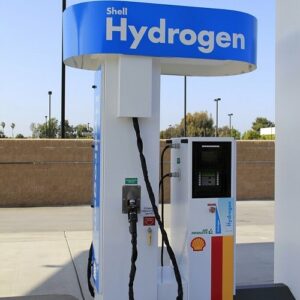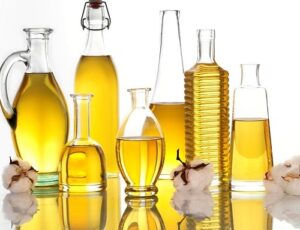Introduction
After its discovery in 1859, oil became one of the most treasured assets utilized day by day. In fact, oil is a crucial commodity in the world that many people and industries cannot live without. The main reason for that is the various functions of oil whether as edible oil, petroleum, or kerosene. Therefore, oil use has progressed through centuries and led people to be heavily dependent on oil and/ or gas in their day to day life facilities. Indeed, it is very important in our lives as it makes fewer inconveniences and higher human lives.
To begin with, the industrial revolution had used oil to change the outlook of the world because it is used in almost all industries that require energy input. That includes power generation, motor vehicle industry, and many more sectors. On that account, as oil use has advantages that we cannot survive without, it also has several disadvantages, especially to the environment. Thus, the article presents some of the pros and cons of using oil in energy or electricity generation as well as solutions and alternatives for oil conservation towards healthy and better environment.
Ever since the day of this vital source discovery, innovations are stumbling upon new heights and technology is developing faster than we can imagine. Initially, this progress was not set up to result in harmful consequences nor potential threats to our environment and future. Nonetheless, in recent times, we have witnessed what is happening when resources are exploited ruthlessly.
Advantages of Oil Energy
- Oil is a fossil fuel that has a high energy density
- Oil is easily accessible
- It is a reliable power source
- It is a versatile source of energy
- It has large reserves
- Oil-fired power stations are more efficient
- Oil is used in a variety of industries.
- Oil is a constant power source.
- It has several uses in many industries and can be easily stored.
Disadvantages of Oil on the Environment
- Emission of greenhouse gases.
- It is a major source of air, water, and soil pollution.
- It is a non-renewable and fast depleting energy source.
- The mining of oil is negatively affecting the environment.
- Oil refining produces highly toxic substances.
- Oil leaks are very possible.
- Oil drilling is very dangerous.
- The price of oil keeps rising.
Oil Conservation
Both gas and oil resources are highly nonrenewable and the continuous use of them while disregarding the conservation method will have many consequences. To elaborate, conservation means that the oil now is better and more efficient in regards to economic, environmental, and social costs and benefits. This results in the achievement of higher energy use efficiencies while minimizing wasteful practices and wastages.
As mentioned before, oil conservation towards healthy and better environment has become a necessity as it affects our daily life in many ways; namely:
- Oil and gas conservation reduces our fuel consumption bills and lowers the price of products made from oil to the consumer.
- It promotes less burning as fuels which reduces the number of pollutants released in the air.
- It trims the impact of global warming.
The Need for Oil Conservation Towards Healthy and Better Environment
If we start indulging in oil conservation towards a healthy and better environment right from our day to day activities, we could be able to save more resources. This means we should walk up to nearby places, cycle to school or office, or use public transport as just small keys to the whole concept. As a matter of fact, we should shed led and give more emphasis on alternative sources of energy that are widely known today such as wind, solar and hydro energy.
In the past, nations have attempted to take steps into reducing the dependence on oil, gas, and petroleum which in turn increases their energy expenditures thinking that energy budgets are the only manner to revive sustainable enhancement.
The development of nuclear power plants has served as a big hazard to humankind. In fact, the use of firewood and coal in thermos energy plants is adding up to the degradation of the environment which ultimately leads to global warming. These ideas have created more complications which became a call for an action being oil conservation towards healthy and better environment. Hence, constructing huge dams can make a substantial contribution to the economic and environmental development in electricity deficient developing countries such as India. Nonetheless, as per any large-scale electricity generating option, there are trade-offs. It should be noted that reservoirs damage forests, wildlife habitats, and farmlands. It also uproots entire communities of indigenous people.
- Also, Check The Largest Dams in India.
Domestic Oil Conservation
When at home, individuals can save up to 30% of oil/ gas. There are many recommendations for oil conservation towards healthy and better environment while at home; namely:
- Always make sure that you place the lid on an open cooking pan or vessel. Also, use wide bottom vessels with covers when cooking.
- Light the stove after ensuring that all the ingredients are within reach and ready for cooking because planned cooking saves fuel.
- Use separators in pressure cookers to cook different things at the same time because they save more fuel and time than cooking ordinarily.
- Always use the optimum quantity of water because surplus water consumes more fuel.
- Use cloth reusable bags for groceries.
- Reduce the flame as soon as the boiling starts. Besides, always use the lower flame or small burner more often because it saves 6 to 10% of gas than the bigger flame.
- Leave the frozen food at room temperature before cooking.
- Instead of waxing the floors with petroleum-based commercial wax, use beeswax because it is one of the best methods of oil conservation towards healthy and better environment.
Conservation of Oil on Road
Individuals should consider oil conservation towards healthy and better environment while on the road. These are a few recommendations to do so:
- Keep the vehicle properly tuned to get from 6 to 20 percent better mileage.
- Drive between 45 to 60 km/h and avoid unnecessary accelerating or decelerating.
- Drive in the Correct Gear without changing unnecessarily. Nonetheless, change to a higher gear when driving in the city if your engine will not struggle.
- Instead of waiting for the car to warm up, drive in low gear until the engine warms up.
- Use a GPS to find the fastest way to get to places to avoid the overuse of oil.
- Do not Stop-and-go drive because it wastes fuel. Also, always anticipate stops because when you slam on the brakes, much useful energy is wasted in a heat form. Moreover, switch off the engine if you are at stops of over 2 minutes.
- Always Clean up the Air Filter and have appropriate Tire Pressure. To be precise, use radial tires for more fuel economy. Also, use the recommended oil for your engine.
- Plan the route for fuel consumption and avoid carrying over unnecessary loads because they increase fuel consumption.
- Always try walking for short distances because it is both healthy and fuel consumption.
Use of Alternatives
It comes as no surprise that there are some alternatives to oil use. Obviously, it is very unacceptable to use non-environmentally friendly fuel since there are alternatives available. To name a few:
-
BioFuel

Biofuels are emerging as a more favorable choice in today’s world because of their easy production and environment-friendly nature. In particular, this renewable fuel is domestically manufactured and it can be produced from vegetable oils, animal fats, or recycled greases. Besides, biofuel is known to be an alternative to diesel fuel but that is not all; there is more. As many estimate the material is only used for transportation, biofuel can clean up oil, provide hydrogen, work as cooking oil, and so on.
As a matter of fact, Biogas, which comprises methane and other constituent gases, has a huge potential to be manufactured in India to power all the domestic needs by replacing LPG. It is one of the best alternatives for oil conservation towards healthy and better environment.
-
Hydrogen Fuel

Hydrogen fuel is a zero-emission fuel that is used as an energy carrier because it takes a big deal of energy and extracts it from water. Therefore, it has been very useful as a compact energy source in internal combustion engines as well as fuel cells for many years. At present, hydrogen is starting to be used in many commercial fuel cell vehicles such as passenger cars. Concerning its production, Hydrogen can be manufactured from renewable sources using a gaseous form of methane brought from biomass, biogas, or through electrolysis by the use of electricity that is generated by renewable sources.
-
Solar Energy

In technical terms, it is the energy derived from the sun and is converted into electrical or thermal energy. As a result, it can be used as an energy source since it is the cleanest and most abundantly available renewable energy source. To clarify, there is no release of greenhouse gas emissions into the atmosphere when solar panels are used to create electricity.
Besides, the sun provides more energy than any person or industry ever needs; henceforth, electricity from solar power is a very essential energy source that leads to better and clean energy production. On that account, the total amount of solar energy incident in the world is vastly in excess of the current anticipated energy requirements.
-
Wind Energy

It is also known as wind power and it refers to the process of creating electricity using the wind or air flows to generate power. These two occur naturally in the earth’s atmosphere which makes this energy a clean renewable energy source. In addition, even though wind turbines can be noisy or unappealing, they are the most cost-effective electricity sources. It should be noted that modern wind turbines are used in order to catch kinetic energy from the wind then generate electricity.
-
Ethanol

It is an important industrial chemical that is used as a solvent in the synthesis of many organic chemicals. Also, it is used as an additive to automotive gasoline (forming a mixture called gasohol). Moreover, it is an alcohol-based alternative fuel that is the intoxicating ingredient of many alcoholic beverages among which wine, beer, and distilled spirits. This fuel is produced by distilling and fermenting starch crops or cellulose that were converted into simple sugars. One of the main reasons why this fuel is a good alternative is because it reduces emissions of carbon monoxide, toxic chemicals, particulate matter, and greenhouse gasses. As a result, the overall air quality will be better than when conventional gasoline burns.
-
Vegetable Oil

It is an alternative fuel for diesel engines and it can also be used for heating oil burners. As a matter of fact, only diesel cars can be converted to run on vegetable oil. Originally, diesel engines were designed to run on several fuels among which peanut oil and vegetable oil. Further, these engines work by injecting the fuel into a compressed air chamber where it ignites.
Raise Awareness about Oil Conservation towards Healthy and Better Environment
Raising awareness is much required in our country and the most important part of the process. Educating today’s and tomorrow’s citizens of the nations to take a new lead by knowing the importance of oil conservation and how it has to be used in an efficient form. In addition, this implies in the rural areas of the country where there is a significant amount of substantial use of diesel in water pumps and tractors. Thus, farmers should be aware of certain methods that can aid them in saving diesel.
For instance, they could check for leakages in tractors and make sure that the engines must be turned off when the tractor is not working. Besides that, driving in the wrong gear can put a high load on the engine and cause a 30% increase in fuel consumption. Therefore, we highly recommend driving in the correct gear.
On the whole, once people are aware of oil conservation and its methods, they can influence others to adopt these methods and apply them in the future to support the concept of oil conservation towards healthy and better environment.
Conclusion
To sum up, Oil is very essential in industrial industries as well as our day to day life activities and facilities. Even though it has many advantages in serving our needs, it is very bad for the environment. The consequences made by the oil use and burns as fuels became very alarming for the past years as many are trying to find alternatives and solutions for it. With that in mind, this article introduces oil conservation methods, recommendations, and alternatives that support the main idea of oil conservation towards healthy and better environment.
